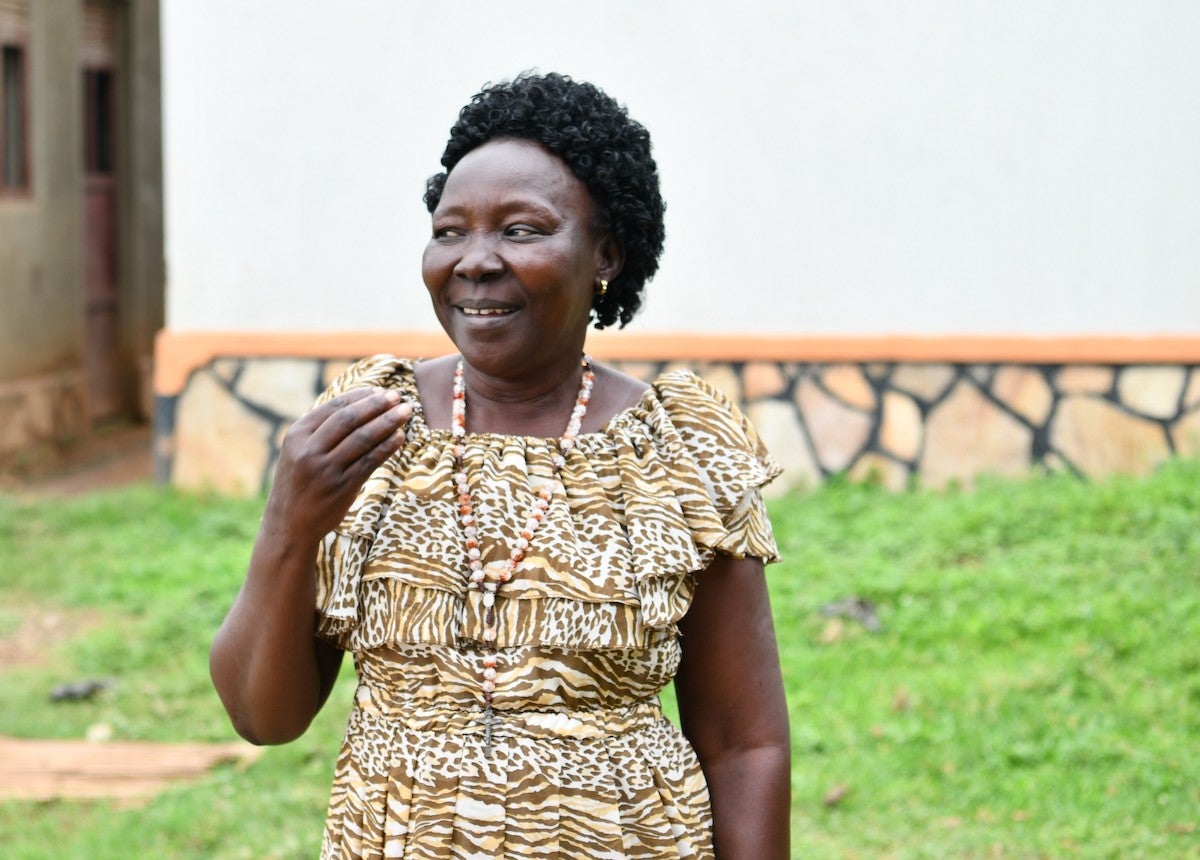From where I stand: With training, women can handle conflict cases with skill and expertise and overcome patriarchal attitudes towards women peace mediators
Date:

Judith Edea, the Chairperson of Karoko Ward in Adjumani District is a Women Peace Mediator in Adjumani district. Since 2018, with funding from the Government of Norway, UN Women has been implementing interventions aimed at increasing representation and leadership of women in formal and informal peace processes and negotiations, including participating as mediators in conflict and post-conflict.
Since 2018, I’ve had the honor of serving as the Local Council 1 Chairperson of Karoko Ward in Adjumani district. As a chairperson, I receive various cases ranging from gender-based violence related cases to land conflicts among others. Resolving conflicts using the traditional court system, often divides rather than bringing healing to the conflict parties. I realised earlier on that the Local Council court is a system where one party won, and the other remained angry, fostering more conflict rather than resolving it.
In 2019, one year after being elected as Chairperson of my village, I was identified and trained by UN Women’s partner, Women International Peace Center (WIPC), as part of a team of Women Peace Mediators. The training on mediation processes, peacebuilding, and conflict prevention was a turning point for me. I came back with new insights and a fresh approach to handling the cases that came before me.
The concept of mediation fascinated me because it promised a way to address conflicts without the adversarial nature of court cases. Mediation is free of charge, doesn’t waste time, and, importantly, it helps people accept their role in conflicts. For many, especially women who often lack the financial resources for legal processes, mediation is a lifeline.
Before the training, I relied heavily on the court system to resolve disputes. But after learning about mediation, I decided to shift my approach. Now, except for serious criminal cases like defilement, I use mediation for most disputes. This change has built trust within the community and made it easier for people to come to me with their issues.
One of my proudest achievements is mediating a land dispute that had been dragging through the court system for thirty years. The land had become a source of insecurity in our community. Using the mediation skills I had learned, I engaged both parties in the conflict. After a series of discussions they reached an understanding and resolved the issue. Seeing the relief and reconciliation that came from this successful mediation was incredibly rewarding.
Despite my success, I still face challenges, particularly due to the patriarchal attitudes that sometimes undervalue women in mediation roles. Many men initially struggled to accept a woman mediator, believing that it wasn’t a space for women. However, my training and approach have demonstrated that women can handle conflict cases with skill and expertise, gaining the community’s respect and confidence.
What brings me the most joy in my work is witnessing conflicting parties reconcile and seeing vulnerable women receive the justice they deserve through mediation. Each successful resolution reaffirms my belief in the power of mediation and fuels my commitment to this vital work.